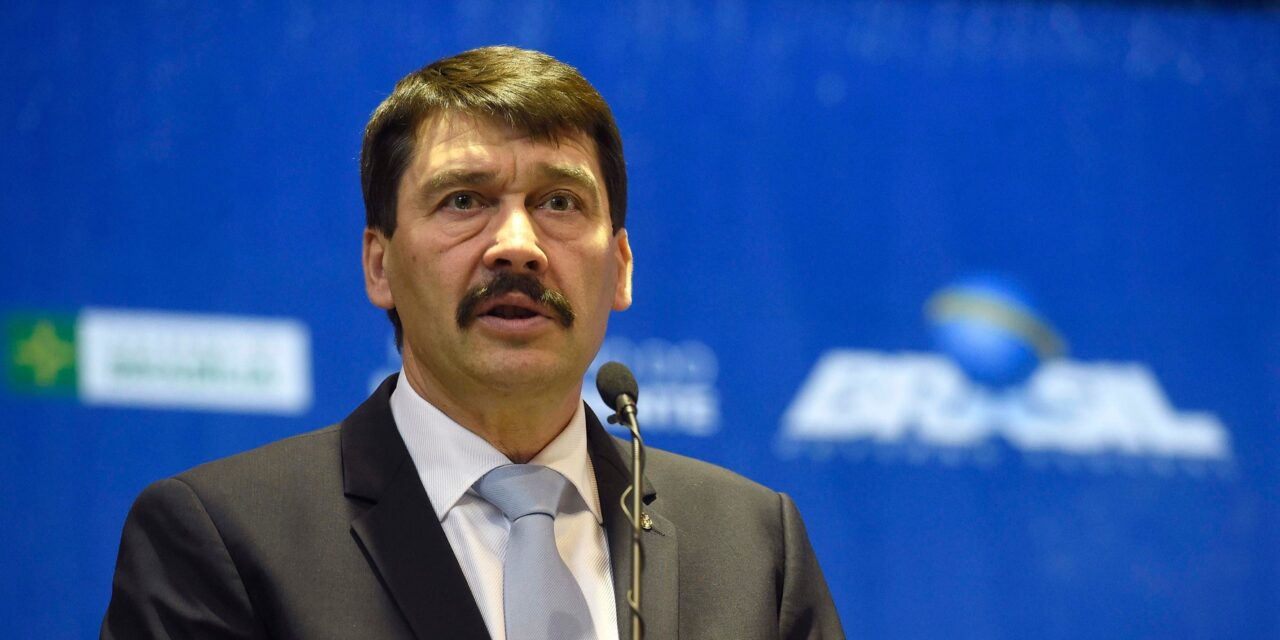Climate change can no longer be stopped, but it can still be slowed down, and we must adapt to the changes - said János Áder, former president of the republic, chairman of the board of trustees of the Kék Bolygó Climate Protection Foundation, during his lecture on Tuesday evening at Semmelweis University in the framework of the Green University - together for our environment course.
János Áder, former president of the republic and chairman of the board of trustees of the Kék Bolygó Climate Protection Foundation, gave a lecture on sustainability in the framework of the subject "The Green University - for our environment together".
The carbon dioxide molecule released now will be here for decades to come and exert its effect, he pointed out.
And the population of the Earth will increase from the current 8 billion to 10 billion by 2050, and it is not possible to reduce emissions and stop climate change due to these factors alone.
At the same time, he added, we must slow down and adapt to the changing climatic conditions. For example, it is no longer possible to plant the same forests as 50 years ago, new wheat, corn and sunflower seeds are needed, the breeding of which can take up to 15 years. It is necessary to prepare for extreme weather events, for periods of drought every 2-3 years and at the same time for floods. Hungary is not in the worst situation in Europe, but time is pressing for us - warned János Áder.
Hungary is at the forefront of Europe in terms of wastewater cleanliness, flood protection and reduction of harmful emissions, the latter partly a consequence of the end of the former socialist industry and the industrial and technological change, added the former head of state.
He also spoke about the fact that it is not possible to achieve the climate goals without nuclear energy. The capacity of solar and wind energy can be expanded, but until the problem of energy storage is solved, green energy is not enough, basic power plants are needed. Humanity wants to get rid of fossil energy - coal first, then oil, then gas - but it will need energy, electricity. And if there are no fossil fuels, nuclear power plants will be needed, he said.
In relation to the annual global climate conferences with tens of thousands of participants, János Áder pointed out: it would be much more effective if the United States and China, which are responsible for 40 percent of the world's harmful emissions, would negotiate, and then the G20, which already accounts for 80 percent, would get involved; that way the negotiations could be more effective.
He noted that the world is not heading in this direction, everything that is happening in this area is a shambles. Climate conferences have been held for a quarter of a century, and since then the emissions and carbon dioxide concentration have been continuously increasing, noted the former president of the republic.
János Áder also spoke about the fact that currently 2.5 billion of the 8 billion people live under so-called water stress conditions, i.e. they do not have enough water, and by 2050, half of the then expected 10 billion people, around 5 billion, may be in this situation. Only 2.5 percent of the water on Earth is fresh water—most of which is frozen—so only 0.007 percent is surface, liquid, easily accessible fresh water.
80 percent of the problem of climate change occurs through water.
"The three dramas of water are unfolding before our eyes: little water, a lot of water and polluted water," said János Áder.
The problem of a lot of water mainly means floods. Recently, a flood caused 30 billion dollars in damage in Pakistan. Hungary is no exception: in 2013, the great Danube flood peaked at 892 centimeters in Budapest, breaking all previous records. The difference between the then and current water level is 6 meters, he added.
The problem of little water appeared especially dramatically this year, 2022 was about drought. In some areas of Hungary, it did not rain for 2 months, all moisture disappeared from the top 1 meter of the soil, 120 streams, rivers, and lakes dried up completely, corn and sunflowers were destroyed on half a million hectares, the damage is about HUF 1,000 billion, said the former head of state.
The drama of polluted water occurs especially in developing countries, where 90 percent of wastewater flows untreated into rivers and seas. There are 3 large garbage islands floating in the oceans, their combined area is the size of India. Pollution comes to Hungary from the Tisza River in Ukraine and Romania; 2 years ago, a line of machines was set up at Vásárosnamény, which marks and collects the garbage arriving by river from neighboring countries. Hungary finances this from its own budget, said the former head of state.
The country has a lot of water, but 90 percent of it comes from across the border. "We are vulnerable in terms of quantity and quality," said János Áder, adding that this water must be managed well.
Source: Magyar Hírlap
Featured image: MTI/Noémi Bruzák













